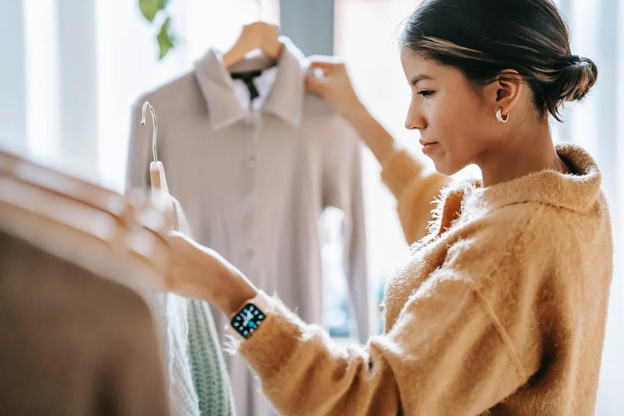
Revealed: The Ecological and Economical Impact of a Return
Nae Vegan ShoesShare
We’ve all been there. Sat, staring with a mixture of confusion and intimidation at a website’s shopping cart, wondering if that item of clothing you’ve got your eye on will actually fit you, before our eyes settle on that magical sentence ‘free returns’.
In a digital storefront, trying on clothes before you buy them is just not a viable option without days, perhaps weeks of hassle, refunds, and shipping costs for either you, the business, or both.
As a shoe company, we’ve heard you; the majority of our returns come from a misunderstanding of our sizing. This is why we’ve taken the time to make an accurate guide for fitting our shoes, and yes, we have metric and imperial measurements. Rejoice, now you’ll no longer have to search for “what is 24 CM in inches?”, just for the answer to show up as “24CM”. Helpful.
Sizing guide
To help you find the right shoe size for you, we’ve put a lot of work into making a comprehensive guide to all of our shoes, and how to accurately measure yourself, so you make a more informed purchase. You can find our guide here.
The ecological impact of “try before you buy”
We are champions of only buying the clothes you need, and wearing them for as long as you can. And on the face of it, the “try before you buy” system sounds solid. You are sent clothes for free by a company, with the understanding that you’ll be automatically charged if you don’t send them back within a trial period. First popularized by retail giants, this has come to be expected by many consumers. But when you consider this in the context of an online retailer, cracks begin to show in the sustainability model.

Let’s say that you order 5 different pairs of vegan shoes, shipped from Portugal to Berlin, with the intention of keeping only the pair that you like the most. To ship the shoes that 1,700 mile one way journey would release 2KG of CO2e, and thus, returning them again would make a total of almost 4KG. And that’s only if the shoes travel by land. If the courier company decides to send them by air, the total emissions for your return could be over 23KG of CO2e. We live in a society where fossil fuels are still being used at every level of shipping, and that has a knock on effect when things have to be sent backwards and forwards multiple times. Trying things out before buying them really does sound like a good way to avoid waste, but that only works out when shopping in person. When buying digitally, a better approach is to just order what you earnestly intend to keep, and use return policies only when you really need them.
The economical impact of “try before you buy”
The reporting of Forbes said it best:
“In a time when fast fashion moves incredibly fast, [businesses] need to be cautious that the items can still be sold at a profitable price if they’re returned.”
We’re going to be honest: returns are expensive. Shoes are a fairly large and bulky item for their weight, with empty space filling a lot of shoe box real estate to accommodate their ergonomic shape. “Free” returns are free to the customer, but that only really means that the business picks up that cost. Of course, if there is a problem with your order, we’re more than happy to accommodate you and help you find a product that is just right, but when large orders are being returned only for the sake of trying on a few styles to see how they look, the price begins to stack up. We offer a generous free returns window exactly because we want to promote long-term use of your new shoes and a chance to get the feel of a new pair, but there has to be a mutual attempt to be sustainable in our ordering habits. Consumers are so used to fast fashion giants and mega-retailers being able to offer these try before you buy policies and eat the cost, they are almost programmed to forget that small and medium sized enterprises can’t always absorb losses on that scale that often. As we’re manufacturing in-country, with fair wages and high quality vegan materials, the profit margin isn’t always the highest, and thoughtless returns really do make an impact on that. If we want to keep offering the products we do with the same sense of social responsibility and care, we humbly ask that you think of the environment, and the smaller business you’re dealing with before going ahead with sending something back.
Conclusion
We really hope that our guide can help you undertake a better, more informed shoe shop, and get the size that works for you the first time. There’s nothing more daunting and stressful than having to take time out of your day to head down to the post office and send something back, worrying about tracking numbers, and things getting lost in transit. Returns aren’t ideal for you or for us, and after the work we’ve put in, we hope we can do our part as the company to make your shop that bit more convenient.
